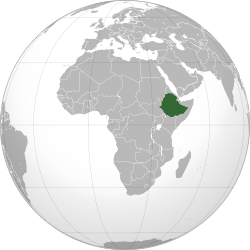Process Description
After two interviews with people who are both from Ethiopia, I looked for my third Ethiopian interviewee, since I think it is better to interview three people with the same background. I asked a lot of my friends who know many people here, finally I met one who has been here for four years, I was very happy because I was very positive that she can speak very good English, which means that our conversation will be able to go deeper. I agreed to meet in a piano room at the performance center, where it is very quiet and no interruptions. As before, I gave her the question sheet first so that she could look at it and be prepared, and I took out my ipad and made sure that it was working. Finally, we got started, we have some very good conversations like their religions and culture; as what I expected before, and some of the answers she answered were pretty much the same as the other two interviewees, which is good from my perspective. Anyway, it took us about 20 minutes and went very well.
Personal Review
The third interview was very easy for me I think after the preparation and exercise of the first twos. I was not nervous at all this time since I know what I should do and how to avoid awkward situation. I think what helped a lot was the fact that my three interviewees are from the same country, which made me became very prepared after the first two interviews, and moreover, I could really envision the picture in my mind when I was listening to her, since I already knew the country very well. Altogether, I think the three interviews I had gave me a good understanding of what Ethiopia is like even though I had rarely known the country before. Furthermore, after all the experiences, I feel like I am no longer feeling nervous when I interview people I have never seen before, and it also taught me an important lesson of how to have an effective conversation and how to avoid awkward situation.
Country Report
My interviewee is from Ethiopia, which I never really get to know before; here is some information about it.
Ethiopia is located in the northeast of Africa. It is the second-most populous nation in Africa, with over 82 million people and its capital is Addis Ababa. Ethiopia is surrounded by Eritrea, Sudan , South Sudan, Djibouti , Somalia , and Kenya. Ethiopian is known as one of the oldest site of human existence in the world, its history can be traced back to thousands of years ago. “The politics of Ethiopia takes place in a framework of a federal parliamentary republic, whereby the Prime Minister is the head of government. Executive power is exercised by the government. Federal legislative power is vested in both the government and the two chambers of parliament” (1).
The Ethiopian economy is based on agriculture, “which contributes 42% to GDP and more than 80% of exports, and employs 80% of the population. The major agricultural export crop is coffee, providing approximately 26% of Ethiopia's foreign exchange earnings, down from 65% a decade ago because of the slump in coffee prices since the mid-1990s and increases in other exports”(2).
Ethiopia has almost 50 different domestic languages, but a lot of people know how to speak English that is the most popular foreign language in its country. Moreover, there are also numerous indigenous African religions in Ethiopia, mainly located in the far southwest and western country, and the most popular religions are Christianity and Muslim.
1. http://en.wikipedia.org/wiki/Politics_of_Ethiopia
2. http://www.state.gov/r/pa/ei/bgn/2859.htm#econ


No comments:
Post a Comment